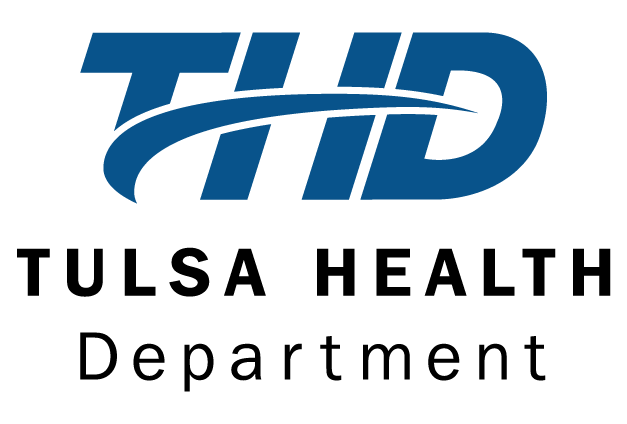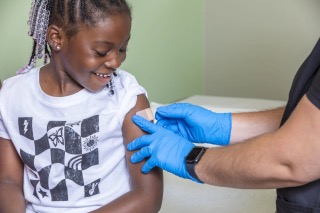Tulsa Health Department – Epidemiology Program
Feeling sick from your favorite meats? It might be alpha-gal syndrome (AGS). This is a tick-borne allergic condition triggered by the bite of the lone star tick (Amblyomma americanum), is gaining increasing attention in Oklahoma and across the United States. This syndrome causes individuals to develop a delayed (3-6 hours after eating) allergic reaction to mammalian meat products, due to the body forming an immune response to the alpha-gal sugar molecule found in red meat.
When a Lone Star tick feeds on mammal blood, it carries a sugar molecule called alpha-gal in its gut. During a bite, trace amounts can enter the human body through the tick’s saliva. Because humans don’t naturally have alpha-gal, the immune system may create antibodies against it. Later, if that person eats red meat or certain mammal products, the immune system may overreact causing allergy symptoms hours after a meal.
Symptoms range from mild as having hives and upset stomach to severe reactions such as difficulty breathing or anaphylaxis (life-threatening reaction).
Diagnosis typically involves a blood test measuring IgE antibodies to alpha-gal, which is currently the most reliable method. While some individuals may experience a decrease in sensitivity over 1 to 5 years without additional tick bites, alpha-gal syndrome is generally considered a chronic condition that requires ongoing management and lifestyle changes.
In recent years, the number of reported alpha-gal cases has risen significantly in Oklahoma, correlating with the expanding range of the lone star tick across the southeastern and central U.S.
Those most at risk include hunters, hikers, farmers, and outdoor workers—anyone spending extended time in areas where lone star ticks are common. While these ticks have traditionally been found in the southeastern U.S., their range is expanding northward due to climate change and ecological shifts.
As for prevalence, the CDC estimates that approximately 0.15% of Americans have been diagnosed with alpha-gal syndrome, but the true number is likely much higher, as the condition is not nationally notifiable. For example, Martha’s Vineyard Hospital reported 523 positive tests for alpha-gal in 2023, compared to only 2 in 2020 demonstrating both increased awareness and a potential rise in cases.
Prevention = Protection
- Use EPA-registered repellents
- Wear long sleeves and pants in tick-heavy areas
- Check your body and clothing after being outdoors
- Shower soon after outdoor activity
- Treat gear and clothing with permethrin when possible
From a public health perspective, the emergence of alpha-gal in Oklahoma highlights the importance of monitoring vector-borne diseases in both rural and suburban areas. Warmer temperatures, changing land use patterns, and increased human interaction with tick habitats are all contributing to the tick’s spread. Epidemiologists are particularly concerned about underreporting, as many patients and clinicians remain unaware of the condition, leading to misdiagnoses or delayed care. Increased awareness campaigns, better surveillance, and clinician education are essential to understanding the true burden of alpha-gal syndrome in the state.
As Oklahoma continues to experience environmental and ecological changes, alpha-gal syndrome serves as a reminder of the evolving challenges in infectious disease epidemiology and the need for proactive, data-informed public health responses.
References & More Information
- CDC: Alpha-gal Syndrome
- Mayo Clinic: Alpha-gal Syndrome Overview
- NIH/NIAID: Tick Bites and Red Meat Allergy




